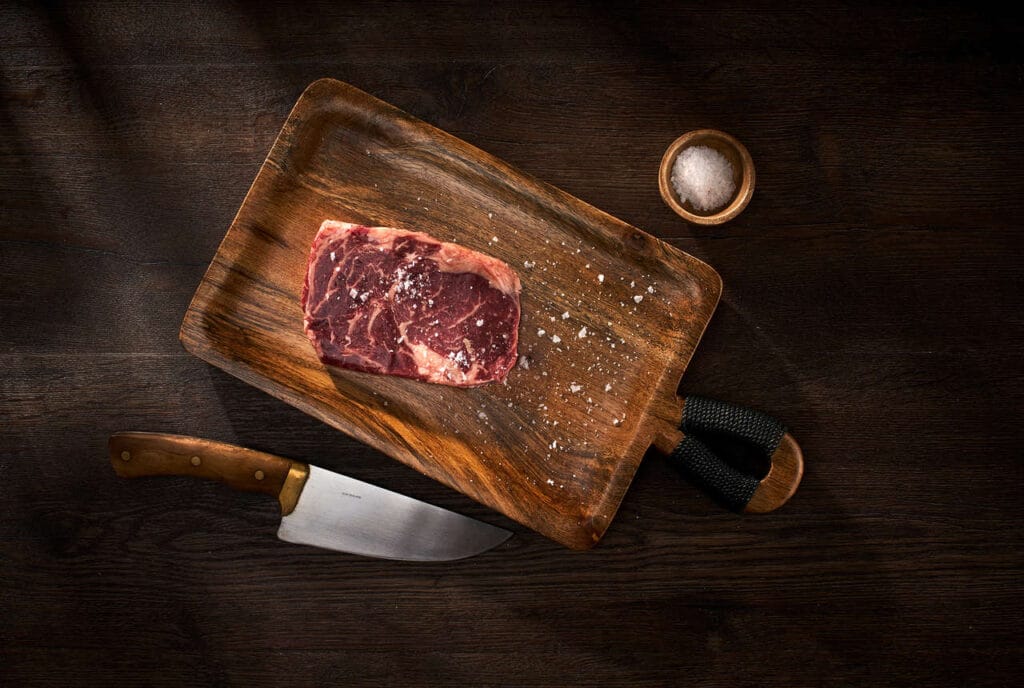Heart health in men unaffected by eating 100% grass-fed Wagyu beef, study finds
The results are in. A study funded in part by First Light, the New Zealand premium meat company producing Wagyu that Forbes recently called “the best beef in the world,” has found that middle-aged men can confidently consume their beef three times each week without damaging their heart health.
The study was conducted by the Liggins Institute at the University of Auckland as part of a High Value Nutrition (HVN) National Science Challenge (NSC) project, led by AgResearch and co-funded by First Light. It took 50 middle-aged Kiwi men between the ages of 35 and 55 who were considered high risk for cardiovascular disease, and put them through an eight-week clinical trial. During the eight weeks, each participant was given a total of 500g of either grass-fed Wagyu beef, regular beef, or soy protein, spread over three portions per week. Participants were told to avoid other red and processed meats during the trial.
At the conclusion of the eight weeks, all three groups had improved their cholesterol. The group consuming the 100% grass-fed Wagyu measured a cholesterol drop from an average of 7.0 to 5.5 mmol/L.
Study lead Professor David Cameron-Smith says the results will be presented at a science conference in Rotorua this week, and he’s delighted to share them. “Our research was to identify whether eating New Zealand grass-fed Wagyu beef for typical middle-aged males was detrimental to heart health,” he explains. “Wagyu is known equally for its tenderness and high levels of fat, and our research focused on the specifics of how this fat might impact on heart health. However, eating Wagyu three times each week for eight weeks had no negative impact on the risk factors of heart disease, including cholesterol levels and blood pressure. Our research demonstrates that as part of a healthy lifestyle, enjoying premium New Zealand grass-fed Wagyu beef is not detrimental to heart health in men.”
First Light co-founder Jason Ross, whose company provided the Wagyu beef for the study, says the premium meat producer was keen to participate in the trial. “We had always known our 100% grass-fed Wagyu beef tastes delicious, and we’d also learned that our Wagyu beef had higher levels of Omega-3 than other beef, which is great for brain health. We wanted to see what we could find out about heart health, particularly around the common perception that red meat is damaging to the heart,” says Jason.
“We had some idea of what the outcome might be, but of course what we didn’t anticipate was that if you put a group of middle-aged Kiwi men in a study that is measuring their cholesterol at the beginning and at the end of the study, some of them might begin to change or manage other risk factors in their lives too.”
Jason says while he imagines there may have been a few more brisk jogs going on within the test group, one thing is clear. “Middle-aged men can feel confident that if they eat grass-fed Wagyu three times a week, at the very worst, their cardiovascular health will be unaltered.”
“We think this is not only great news for First Light, but for the New Zealand beef industry,” Jason continues. “We’re proud to have supported the study, and rapt there is now yet another reason for Kiwis to continue enjoying our delicious 100% grass-fed Wagyu beef.”












